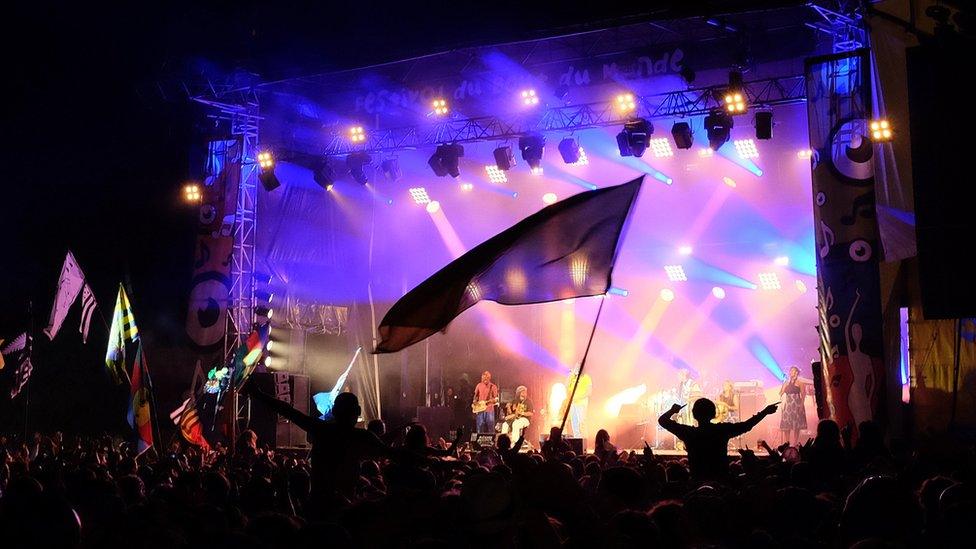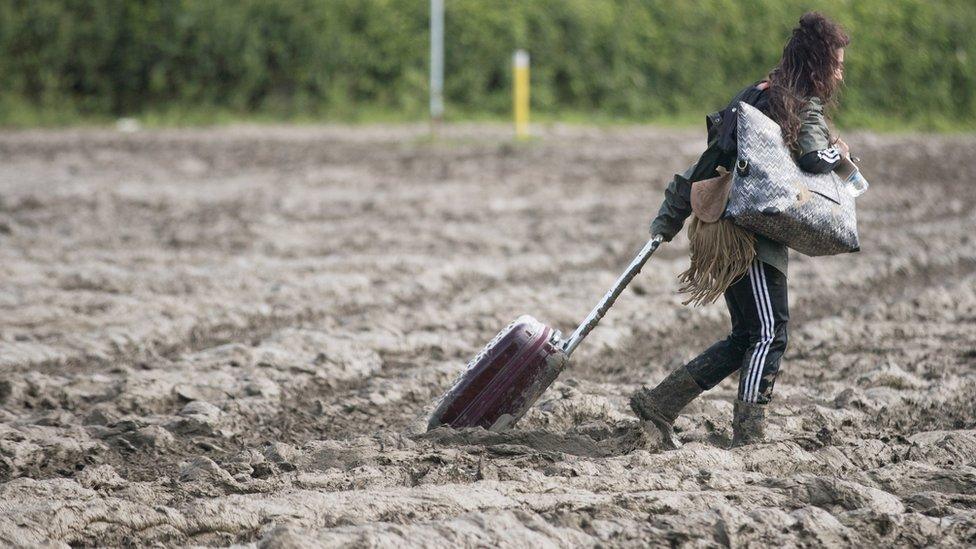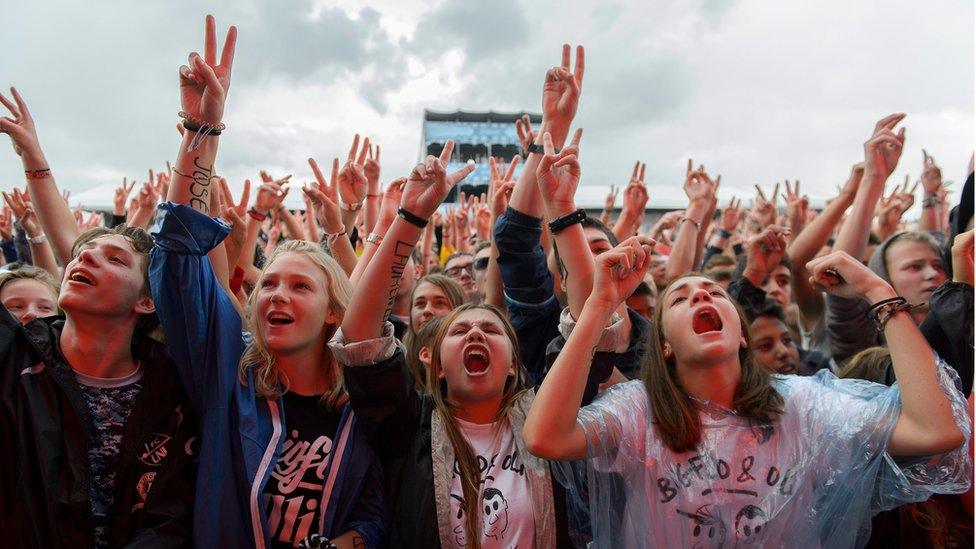What makes a festival 'superfan'?
- Published

In total, 3.7 million people attend festivals in the UK every year
Festivals in the UK are being bolstered by a band of dedicated superfans, according to new research.
They attend more than four events a year, spending more money than the average fan. Due to the cost of tickets and camping, they're usually in their 30s, with an average income of £45,000.
The survey, commissioned by ticketing website Eventbrite, had a small sample size (just 504 respondents), meaning its results may not be 100% accurate - but those hardcore fans definitely exist.
"I've never thought of myself as a superfan, but me, my family and friends can attend four or more festivals a year," says Rob Henderson. "I thought this was quite normal."
He was immersed in music from a young age, attending local folk festivals with his dad.
"But that wasn't camping out," he says. "It was just in pubs and things like that. Everyone had to be quiet and you weren't allowed to leave the room until the music finished - so I didn't really count that as a festival.
"It was probably about 1995 in Reading when I was let off on my own to find out what I liked."

Rob Henderson with friends at Solfest 2014
These days, that means smaller, boutique events, with a focus on drum and bass music.
"I like nice little chilled-out festivals, where all the people get on and there's no trouble whatsoever. You don't seem to get that at the big festivals like V and Reading."
Fellow superfan David Burton says he spends more than £2,000 per year on tickets. He, too, prefers to avoid the bigger festivals, which "can seem too money-driven".
He says some promoters "over-sell" their VIP tickets, to the point where the "premium VIP areas are still jammed solid with queues for the toilets".
"Ramblin' Man seem to have the right idea, though, with a VIP area you can see the main stage from, staff wandering around buying drinks for you, and a size that means the acts aren't just ants in the distance."

The 'superfans' we spoke to tend to avoid bigger festivals like Glastonbury, maybe because of scenes like this
Both Rob and David highlight the social aspects of attending festivals, with the opportunity to "catch up with mates you haven't seen for ages" almost as important as the music itself.
Again, that's easier in a smaller venue. "At Download unless you've arranged to meet someone, randomly spotting them in such huge crowds is a challenge," says David.
While these recurring visitors are the bedrock of the festival scene, this summer's economic uncertainty has unexpectedly bred a new generation of festival fan.
"We're a family with two daughters, aged 12 and seven, who normally enjoy holidays in Egypt or Turkey," Justin Browning-Smith tells the BBC.
"We've decided to stay in UK this year, principally because of recent terror attacks, and festivals will form a big part of our breaks. So far, we've been to Newark Festival, British Summer Time [in Hyde Park] and have hired a motor home for Lakefest next weekend."
The family have been so enamoured with the experience that they're considering buying a motorhome and "trying to get to Glastonbury next year".
Meanwhile, Rob has achieved superfan nirvana: Setting up his own festival. The Old Sawmill Garden Party, external takes place next month in a "secret location" between Leeds and Middleborough.
Featuring dance music from the likes of Mini Da' Minx and The Asbo Disco, it grew out of a garden party he used to hold at his mum's house.
"It started out with 20 people, and a couple of years down the line there's, like, three or four hundred people turning up.
"My mum said: 'Look, we can't have 300 people in the back garden - so we got our own area at a few local festivals, and it's escalated from there."

Follow us on Twitter @BBCNewsEnts, external, on Instagram at bbcnewsents, external, or email entertainment.news@bbc.co.uk, external.

- Published8 August 2016

- Published27 June 2016
